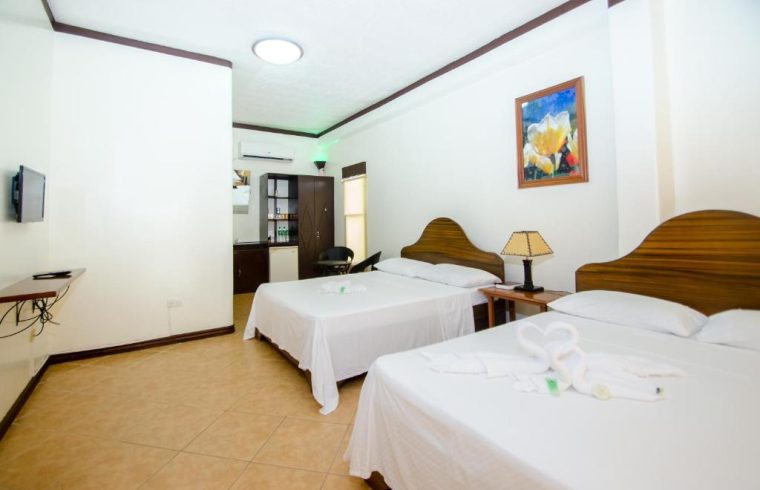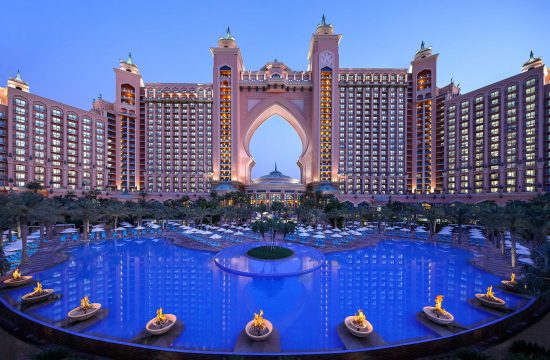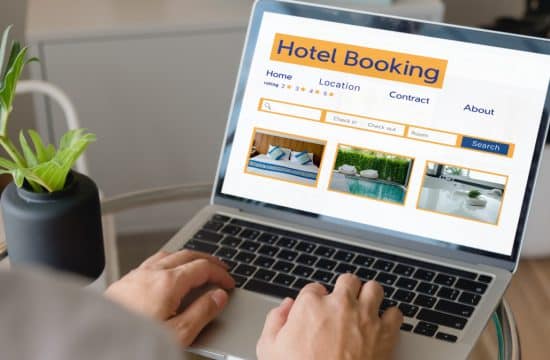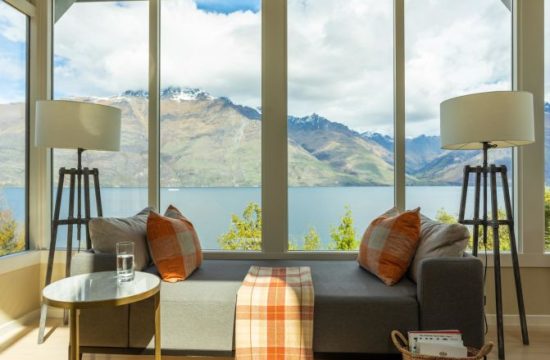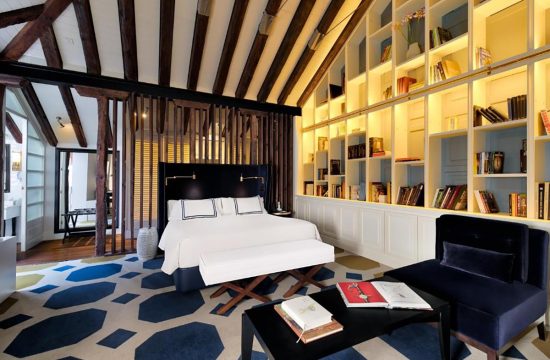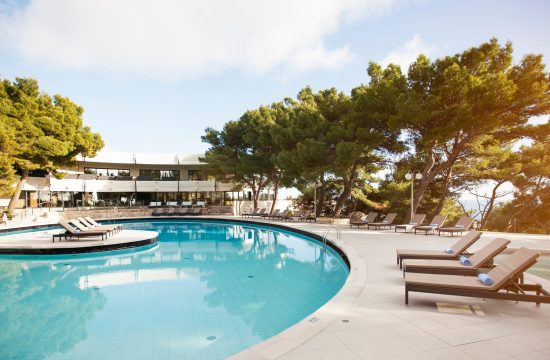Traveling is a gateway to adventure, relaxation, and new experiences. One of the key elements that can shape your journey is your choice of accommodation. Whether you’re a budget-conscious backpacker, a mid-range traveler seeking comfort, or a luxury seeker in pursuit of indulgence, the perfect hotel can significantly enhance your travel experience. This comprehensive guide explores various hotel options, providing insights into how to find the ideal place to stay for every type of traveler.
Understanding Your Travel Needs
Before embarking on your hotel search, it’s essential to understand your unique travel needs and preferences. Here’s a detailed look at factors to consider:
1.1. Budget
Your budget is often the primary determinant in choosing a hotel. It helps narrow down your options and ensures that you find accommodations that meet your financial constraints while providing the necessary comfort. Establishing a clear budget involves:
- Setting a Maximum Limit: Decide on the maximum amount you’re willing to spend per night.
- Considering Additional Costs: Factor in any extra fees such as taxes, service charges, and incidental expenses.
- Balancing Quality and Cost: Look for accommodations that offer the best value within your budget, ensuring comfort without overspending.
1.2. Location
The location of your hotel can greatly impact your travel experience. Consider the following aspects when evaluating location:
- Proximity to Attractions: Choose a hotel that is conveniently located near the major attractions or activities you plan to visit.
- Access to Public Transportation: Ensure the hotel is close to public transportation options like buses, trains, or subway stations for easy mobility.
- Safety and Convenience: Opt for a location that is safe and offers convenience in terms of nearby amenities such as restaurants, shops, and banks.
1.3. Type of Experience
Different travelers have varying expectations from their accommodations. Determine the type of experience you desire:
- No-Frills Comfort: If you prefer a basic stay with essential amenities, focus on budget and mid-range options.
- Luxury and Pampering: For a more indulgent experience, look for high-end hotels and resorts that offer premium services and facilities.
- Unique and Local: If you value unique experiences and local charm, consider boutique hotels and guesthouses that reflect the local culture.
1.4. Amenities and Services
Identify the amenities and services that are important for your stay. Common amenities to consider include:
- Free Wi-Fi: Essential for staying connected and planning your itinerary.
- Breakfast: A convenient way to start your day without having to search for a meal.
- Airport Transfers: Useful if you want a hassle-free arrival and departure.
- Fitness Center/Pool: Important if you want to maintain your fitness routine or enjoy some leisure time.
1.5. Travel Companions
Your choice of accommodation will also depend on who you’re traveling with:
- Solo Travelers: Look for options that offer safety, social interaction, and convenience.
- Couples: Seek romantic and private settings, such as boutique hotels or luxury resorts.
- Families: Choose family-friendly hotels with spacious rooms, kid-friendly amenities, and activities.
- Groups: Consider accommodations with multiple rooms or suites, and ample common spaces.
Budget-Friendly Hotels: Comfort Without Compromise
For travelers looking to save money while still enjoying a comfortable stay, budget-friendly hotels are an excellent choice. Here’s a deeper look at various budget-friendly options:
2.1. Hostels
Overview: Hostels are a staple for budget travelers, especially backpackers and solo adventurers. They offer dormitory-style accommodations at affordable rates, with some providing private rooms.
Features: Hostels typically provide:
- Shared Dormitories: Bunk beds in shared rooms for lower costs.
- Private Rooms: Some hostels offer private rooms with shared bathroom facilities.
- Communal Areas: Common spaces for socializing, such as lounges, kitchens, and dining areas.
- Organized Activities: Tours, pub crawls, and social events to enhance interaction with fellow travelers.
Advantages: Hostels are incredibly affordable and foster a sense of community among travelers. They provide opportunities to meet new people and share travel tips.
Considerations: Privacy can be limited in shared dorms, and amenities may be basic. Noise levels can also be higher due to the communal nature of the environment.
2.2. Budget Hotels
Overview: Budget hotels offer private rooms with essential amenities at lower prices. They may be part of larger chains or independently owned.
Features: Common features include:
- Private Rooms: With en-suite bathrooms and basic furnishings.
- Breakfast: Often included or available at an additional cost.
- Free Wi-Fi: To stay connected.
- Basic Amenities: Such as toiletries, TV, and sometimes a small workspace.
Advantages: Budget hotels provide more privacy and comfort compared to hostels. They are often strategically located for easy access to attractions and transportation.
Considerations: While offering better privacy than hostels, they may lack the luxurious touches and additional services found in higher-end hotels.
2.3. Motels
Overview: Motels are a practical choice for travelers on the road. They are usually located along highways and offer convenient access.
Features: Key features include:
- Parking: Typically right outside your room for easy access.
- Private Rooms: With basic furnishings and often a small kitchenette.
- Simple Check-In/Out: Streamlined processes to facilitate quick stays.
Advantages: Motels are cost-effective and provide easy access for travelers on long journeys. They are ideal for short stays and road trips.
Considerations: Motels may lack the additional amenities and comforts of more upscale hotels. They are generally more functional than luxurious.
2.4. Guesthouses and B&Bs
Overview: Guesthouses and bed and breakfasts (B&Bs) offer a more personalized and homely experience. They are typically independently owned and operated.
Features: Common features include:
- Private Rooms: Often with a more personal touch and home-like atmosphere.
- Breakfast: Usually included in the stay, often homemade and locally sourced.
- Local Insight: Hosts often provide valuable recommendations and insights about the area.
Advantages: Guesthouses and B&Bs offer a cozy, homey feel and personalized service. They often reflect the local culture and provide a unique experience.
Considerations: Comfort and amenities can vary widely. It’s important to research and read reviews to ensure a positive stay.
Mid-Range Hotels: Balancing Comfort and Affordability
For travelers seeking a balance between cost and comfort, mid-range hotels provide a range of amenities and services that offer great value. Here’s an in-depth look at mid-range options:
3.1. Boutique Hotels
Overview: Boutique hotels are known for their unique design, personalized service, and intimate atmosphere. They are often independently owned and offer a distinctive experience.
Features: Boutique hotels typically offer:
- Unique Design: Stylish and often eclectic décor that reflects the local culture or a specific theme.
- Personalized Service: High level of guest care, with staff often going the extra mile to meet individual needs.
- Amenities: Comfortable rooms with modern amenities such as Wi-Fi, premium bedding, and sometimes an on-site restaurant or bar.
Advantages: Boutique hotels provide a more personalized and memorable stay compared to larger chain hotels. They often offer a unique ambiance and local charm.
Considerations: Boutique hotels may be slightly more expensive than standard mid-range options. They are best for travelers seeking a distinctive and intimate lodging experience.
3.2. Chain Hotels
Overview: Mid-range chain hotels offer consistent quality and comfort across different locations. They are part of larger hotel chains with standardized services.
Features: Typical features include:
- Consistent Quality: Reliable comfort and service across locations.
- Amenities: Free Wi-Fi, breakfast, fitness centers, and sometimes business facilities.
- Loyalty Programs: Rewards programs that offer benefits and discounts for frequent travelers.
Advantages: Chain hotels provide predictable comfort and convenience. They often have good locations and offer perks for loyalty members.
Considerations: Chain hotels may lack the unique character and local flavor found in boutique hotels. They are ideal for travelers who prefer reliability and consistency.
3.3. Serviced Apartments
Overview: Serviced apartments are ideal for longer stays or travelers who prefer more independence. They combine the comforts of home with hotel-like services.
Features: Key features include:
- Apartment-Style Living: Includes private kitchens, living areas, and sometimes laundry facilities.
- Hotel Services: Regular housekeeping, reception, and sometimes additional services like concierge or room service.
- Space: More spacious compared to standard hotel rooms, making them suitable for families or groups.
Advantages: Serviced apartments offer flexibility, additional space, and the convenience of self-catering. They are perfect for extended stays or family vacations.
Considerations: They may require a longer minimum stay and can be pricier than traditional mid-range hotels. They are best suited for travelers needing more space and independence.
3.4. Eco-Friendly Hotels
Overview: Eco-friendly hotels are committed to sustainability and environmental responsibility. They implement green practices and support local communities.
Features: Common practices include:
- Sustainable Practices: Use of renewable energy, water conservation measures, and eco-friendly products.
- Local Sourcing: Support for local communities through sustainable food sourcing and partnerships.
- Green Certifications: Many eco-friendly hotels have certifications from recognized environmental organizations.
Advantages: Staying at an eco-friendly hotel allows travelers to minimize their environmental impact and support sustainable tourism practices.
Considerations: Eco-friendly hotels may be slightly more expensive, but they offer the benefit of contributing to environmental preservation and supporting local economies.
Luxury Hotels: Indulge in Opulence and Elegance
For those seeking the pinnacle of comfort and extravagance, luxury hotels provide unparalleled service and amenities. Here’s a closer look at the world of luxury accommodations:
4.1. Five-Star Hotels
Overview: Five-star hotels represent the epitome of luxury, offering world-class service and opulent surroundings.
Features: Typical features include:
- Exceptional Service: Personalized attention with butlers, concierge services, and 24-hour room service.
- Luxurious Accommodations: Sumptuous rooms with high-end furnishings, premium bedding, and expansive bathrooms.
- Exclusive Amenities: Spa services, fine dining restaurants, and state-of-the-art fitness centers.
Advantages: Five-star hotels provide the highest level of comfort, service, and luxury. They offer an exceptional experience with attention to detail and personalized care.
Considerations: The cost of staying in a five-star hotel can be significantly higher. They are ideal for travelers seeking the ultimate in luxury and indulgence.
4.2. Luxury Resorts
Overview: Luxury resorts offer a complete vacation experience with extensive facilities and services. They are often located in scenic or exotic destinations.
Features: Common features include:
- Extensive Facilities: Multiple dining options, recreational activities, and spa services.
- Scenic Locations: Located in picturesque settings such as tropical beaches, mountains, or secluded islands.
- All-Inclusive Options: Many resorts offer all-inclusive packages covering meals, drinks, and activities.
Advantages: Luxury resorts provide a comprehensive vacation experience with everything you need on-site. They are perfect for relaxation and indulging in a range of activities.
Considerations: The all-inclusive nature can result in higher upfront costs, but it can also provide value through included amenities and activities.
4.3. Historic Hotels
Overview: Historic hotels combine luxury with historical significance, offering a unique stay in a property with a storied past.
Features: Typical features include:
- Architectural Charm: Restored historical buildings with preserved architectural details.
- Cultural Experience: Opportunities to learn about the history and heritage of the property.
- Elegant Interiors: Luxurious rooms and common areas reflecting the period of the hotel’s history.
Advantages: Staying in a historic hotel provides a unique and culturally rich experience, blending luxury with historical charm.
Considerations: The experience may vary depending on the level of modernization and restoration. It’s ideal for travelers who appreciate historical ambiance and heritage.
4.4. High-End Boutique Hotels
Overview: High-end boutique hotels offer luxury with a personalized touch. They focus on delivering a unique and intimate experience.
Features: Common features include:
- Distinctive Design: Elegant and often eclectic décor that stands out from traditional luxury hotels.
- Personalized Service: Attentive staff providing tailored experiences and personalized recommendations.
- Exclusive Amenities: High-quality amenities and services, often including private dining and curated experiences.
Advantages: High-end boutique hotels provide a blend of luxury and individuality, offering a distinctive and memorable stay.
Considerations: They may come at a premium price, but the unique experience and personalized service can be well worth the cost.
How to Find the Perfect Hotel for Your Trip
Finding the ideal hotel involves more than just picking a category. Here’s a comprehensive guide to help you choose the best accommodation:
5.1. Research and Reviews
Overview: Researching hotels thoroughly can save you from unpleasant surprises. Use multiple sources to gather information:
- Online Review Platforms: Websites like TripAdvisor, Booking.com, and Yelp provide reviews from previous guests, offering insights into the quality and service of the hotel.
- Travel Forums: Platforms like Reddit and Lonely Planet forums can offer personal recommendations and advice from fellow travelers.
- Social Media: Check social media channels for real-time feedback and photos from guests.
Tips for Research:
- Look for Consistent Feedback: Consistent positive or negative comments can give you a clear picture of what to expect.
- Pay Attention to Recent Reviews: Recent reviews provide the most up-to-date information on the hotel’s condition and service.
- Consider Review Sources: Trusted review sites and travel bloggers can offer more reliable insights compared to unverified sources.
5.2. Compare Prices
Overview: Comparing prices across different platforms can help you find the best deal:
- Booking Platforms: Compare prices on multiple booking websites to identify the most competitive rates.
- Hotel Websites: Sometimes booking directly through the hotel’s website can offer additional perks, such as free breakfast or room upgrades.
- Discounts and Promotions: Look for special offers, discount codes, or promotional packages that can provide added value.
Tips for Comparison:
- Check Inclusions: Ensure that the price includes essential amenities such as taxes, fees, and breakfast.
- Evaluate Booking Policies: Compare cancellation policies, deposit requirements, and refund options.
- Consider Additional Costs: Factor in potential extra costs such as parking fees, resort fees, or Wi-Fi charges.
5.3. Check Amenities
Overview: Ensure that the hotel provides the amenities and services that align with your needs:
- Essential Amenities: Verify that the hotel offers necessary amenities such as Wi-Fi, air conditioning, and comfortable bedding.
- Additional Services: Check for extras like on-site dining, fitness centers, or spa services if these are important to you.
- Special Requests: Confirm that the hotel can accommodate any special requests or needs, such as accessible rooms or pet-friendly policies.
Tips for Checking Amenities:
- Read Descriptions Carefully: Pay close attention to the hotel’s description of amenities and services.
- Contact the Hotel: Reach out directly to confirm the availability of specific amenities or services.
- Look for Recent Updates: Check if the hotel has recently updated its facilities or added new amenities.
5.4. Consider Location
Overview: The location of your hotel can greatly affect your travel experience:
- Proximity to Attractions: Choose a hotel that is conveniently located near the attractions or activities you plan to visit.
- Access to Transportation: Ensure that the hotel is close to public transportation options for easy mobility.
- Local Neighborhood: Evaluate the safety and convenience of the surrounding area, including nearby restaurants, shops, and services.
Tips for Evaluating Location:
- Use Maps and Distance Tools: Use online maps to gauge the hotel’s proximity to key landmarks and transportation hubs.
- Read Local Reviews: Check reviews and local guides for insights into the safety and convenience of the neighborhood.
- Consider Walkability: Determine if the area is walkable or if you’ll need to rely on transportation for daily activities.
5.5. Look for Special Offers
Overview: Special promotions and packages can enhance your stay and provide added value:
- Promotional Packages: Look for packages that include additional perks such as free breakfast, spa credits, or activity vouchers.
- Seasonal Deals: Take advantage of seasonal promotions or holiday discounts.
- Loyalty Programs: Join hotel loyalty programs to earn rewards and access exclusive offers.
Tips for Finding Special Offers:
- Sign Up for Newsletters: Subscribe to hotel newsletters to receive information about promotions and exclusive deals.
- Check Deal Websites: Explore websites and apps dedicated to finding travel deals and discounts.
- Inquire Directly: Contact the hotel directly to ask about any available promotions or special rates.
5.6. Contact the Hotel
Overview: Direct communication with the hotel can clarify details and ensure that your needs are met:
- Ask Questions: Inquire about any specific concerns or requirements you may have, such as room preferences, accessibility needs, or special requests.
- Confirm Details: Verify booking details, check-in/check-out times, and cancellation policies.
- Seek Recommendations: Ask the hotel staff for local recommendations or additional services that may enhance your stay.
Tips for Contacting the Hotel:
- Use Multiple Channels: Contact the hotel via phone, email, or online chat to get the most accurate and timely responses.
- Be Specific: Clearly communicate your needs and preferences to ensure they are met.
- Follow Up: Confirm any arrangements or special requests prior to arrival to avoid any last-minute issues.
Conclusion
From budget to bliss, finding the perfect hotel involves careful consideration of your needs, preferences, and travel goals. By understanding your requirements, exploring various hotel categories, and conducting thorough research, you can discover accommodations that enhance your travel experience and ensure a memorable stay. Whether you’re seeking an affordable and functional stay, a comfortable mid-range option, or an indulgent luxury retreat, the right hotel can make all the difference in your journey.
Take the time to evaluate your options, compare prices, and check amenities to find the ideal accommodation that aligns with your expectations. With the right approach, you can enjoy comfort, convenience, and a touch of luxury without overspending. Wishing you unforgettable adventures and a hotel stay that’s nothing short of exceptional with Travel Touriz!

